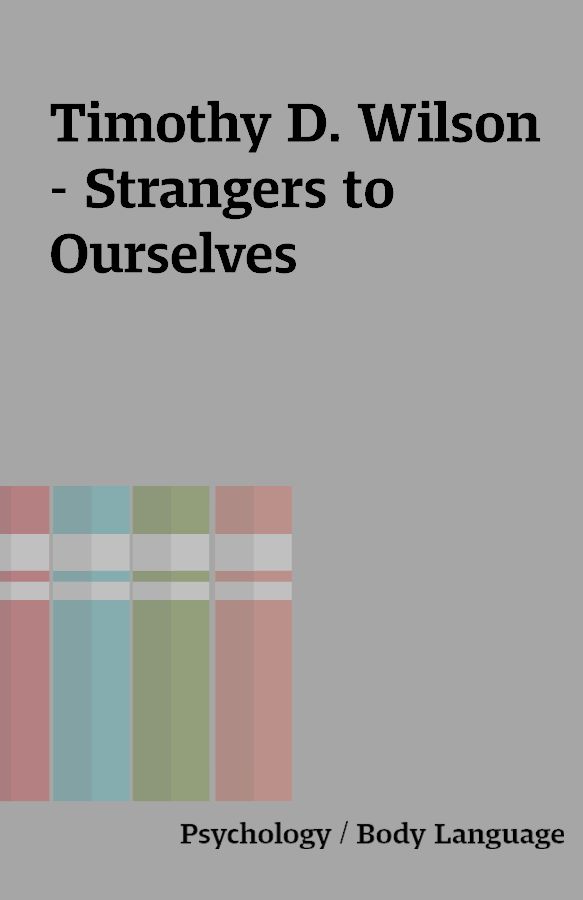Timothy D. Wilson – Strangers to Ourselves
Timothy D. Wilson – Strangers to Ourselves.pdf
[1 eBook – PDF]
Description
From Publishers WeeklyFreud introduced the West to the unconscious, but the last half-century of psychology has reinvented it, argues University of Virginia psychology professor Timothy D. Wilson. In Strangers to Ourselves: Discovering the Adaptive Unconscious, Wilson attempts to explain why there’s so much about ourselves that we fail to understand, which can lead to misdirected anger. He points to a revised, post-Freudian understanding of how the mind works: the reason that their own judgments, feelings, [and] motives remain mysterious to people is not repression, as Freud argued, but efficiency so that the mind can process and analyze multiple things at once. Wilson looks at ways that readers can probe their unconscious, suggesting that soliciting the opinions of others is actually more valuable than introspection.Copyright 2002 Reed Business Information, Inc. –This text refers to an out of print or unavailable edition of this title.From Library JournalHow well do we really know ourselves? How well can we know ourselves? Wilson (psychology, Univ. of Virginia) convincingly argues that our conscious minds are but the tip of the iceberg in deciding how we behave, what is important to us, and how we feel. Surveying a variety of contemporary psychological research, this book describes an unconscious that is capable of a much higher degree of “thinking” than previously supposed by adherents of either Freudian or Behaviorist branches of psychology. Capable of everything from problem solving and narrative construction to emotional reaction and prediction, the adaptive unconscious is a powerful and pervasive element of our whole personalities. Indeed, it may be the primary element of our personalities, controlling our real motivations, judgments, and actions. Wilson examines the evolution of the idea of the unconscious, the various ways in which it operates within us, and how we can look at our actions-rather than our thoughts-to truly know ourselves. A fascinating read; for large public libraries.David Valencia, King Cty. Lib. Syst., Seattle
You must be logged in to post a review.






Reviews
There are no reviews yet.